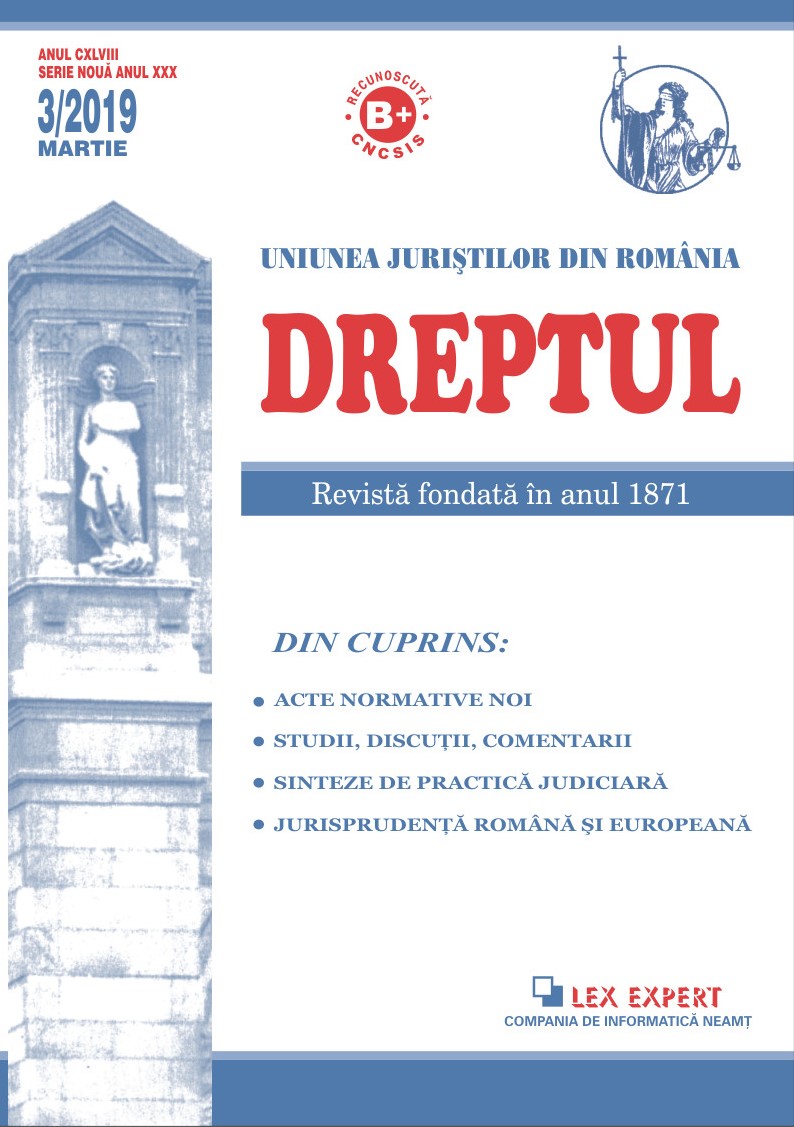O scurtă trecere în revistă a jurisprudenţei Înaltei Curţi de Casaţie şi Justiţie în materia cazului de casare privind aplicarea pedepselor în alte limite decât cele prevăzute de lege
A brief review of the case law of the High Court of Cassation and Justice in the matter of the case of cassation regarding the application of punishments within other limits than those provided by law
Author(s): Valentin-Cristian ȘtefanSubject(s): Law, Constitution, Jurisprudence, Criminal Law
Published by: Uniunea Juriștilor din România
Keywords: case of cassation concerning the application of punishments other than those provided by law; scope of incidence; solutions subsequent to the admissibility of the means of the appeal in cassation;
Summary/Abstract: The article sets out two components of the case of cassation on the application of thepunishment within other limits than those provided by law: the scope of incidence the case ofcassation in question and the solutions that may be given subsequent to the admissibility of themeans of the appeal in cassation and the cassation of the challenged judgment, in this case.In the scope of incidence of the case of cassation on the application of punishments withinother limits than those provided by the law several assumptions of violation of the principle of legalityof the criminal law sanctions are included. First, the appeal in cassation is suitable to remedyillegalities which relate to the very nature of the sanction applied: punishment or educationalmeasure. Secondly, an appeal in cassation may be filed to remedy illegalities related to punishments,regardless of their nature: main, complementary or accessory. Thirdly, within the category of mainpunishments, by way of appeal in cassation illegalities concerning the placement of punishmentoutside the special limits can be remedied, in the absence of a individualization cause. Under a firstaspect, there may be invoked illegalities concerning the placement of punishment below the specialminimum limit, in the absence of a mitigating cause. Under a second aspect, there may be invokedillegalities concerning the placement of the punishment over the special maximum limit, in theabsence of an aggravation cause. Also within the category of the main punishments, by way ofappeal in cassation there may be remedied illegalities resulting from the misapplication of thecriminal treatment of the various causes of individualization.With regard to the solutions which may be pronounced subsequently to the admission of theappeal in cassation and of the cassation of the challenged judgment, in case of applying thepunishment within other limits than those provided by the law, two options can be envisaged. Thecourt of appeal in cassation may retain the case for retrial and rule out the misapplication of the law or refer the case back for retrial to the court of appeal. The criterion for distinguishing between thetwo options is the material activity following the admission of the appeal in cassation and thecassation of the challenged judgment. If this activity is limited to a simple mathematical operation,designed to correct the illegality of the punishment, the court of appeal in cassation retains the casefor retrial and rules out the misapplication of the law. If this concerns a veritable judgment activity,involving more than a mathematical correction of the illegality of the punishment, the court of appealin cassation sends the case to the court of appeal for retrial.
Journal: Revista „Dreptul”
- Issue Year: 2019
- Issue No: 03
- Page Range: 130-137
- Page Count: 8
- Language: Romanian
- Content File-PDF

